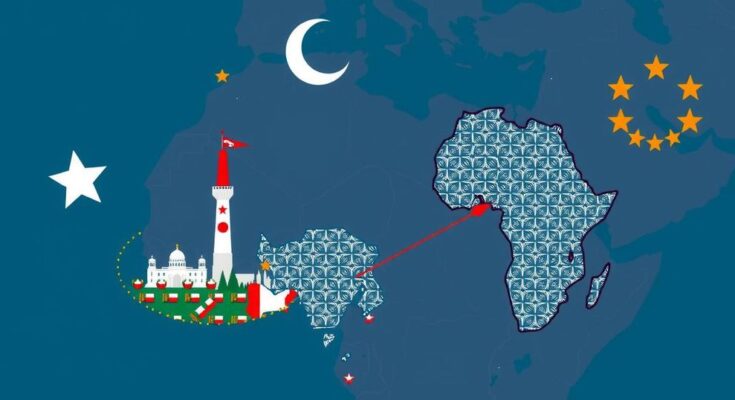Somali scholars, politicians, and leaders convened in Djibouti for a forum aimed at enhancing regional stability amidst rising tensions between Somalia and Ethiopia over a controversial port deal involving Somaliland. Organized by the Heritage Institute for Policy Studies, the event features nearly 300 delegates discussing key issues regarding governance and sovereignty in the Horn of Africa.
On Monday, a three-day forum focusing on enhancing regional stability commenced in Djibouti, attended by Somali scholars, politicians, and traditional leaders from various countries in the Horn of Africa. This annual event, now in its eighth iteration, is organized by the Heritage Institute for Policy Studies based in Somalia. Its executive director, Mursal Saney, emphasized the importance of providing a platform for nearly 300 delegates, including regional experts, to discuss key issues and promote constructive ideas for strengthening the governance and stability of the region.
This year’s forum occurs against a backdrop of escalating tensions between Somalia and Ethiopia, primarily due to a controversial agreement signed by Ethiopia with Somaliland regarding port access. Somaliland, a self-declared independent entity since 1991, is viewed by Somalia as part of its territory, fueling the dispute further. The memorandum of understanding allows Ethiopia to access a strategic Red Sea port and is seen by Somalia as an infringement of its sovereignty, prompting demands for Ethiopia to rescind the deal.
Despite the tensions, Ethiopian officials assert that the agreement does not violate Somalia’s sovereignty. Somali Foreign Minister Ahmed Moalim Fiqi highlighted Somalia’s desire for peace and stability in the region, pointing to the importance of adhering to international law. Djibouti’s Minister of Justice and Religion, Mumin Hassan Barre, called upon the experts present to contribute towards resolving regional challenges, reinforcing the need for local insight in fostering stability.
The forum brings together representatives not only from Somalia but also from Kenya, Ethiopia, Djibouti, and the diaspora communities across the United States, Europe, and elsewhere. The discussions aim to facilitate dialogue and cooperation amid the ongoing challenges posed by territorial disputes and the search for national identity within the Horn of Africa.
The Horn of Africa has been a region marked by complex interrelations and geopolitical conflicts, particularly involving Somalia, Ethiopia, and Somaliland. Since the collapse of the Somali government in 1991, Somaliland has claimed independence, yet it remains unrecognized internationally and continues to be viewed by Somalia as part of its national territory. The recent port deal between Ethiopia and Somaliland compounds this situation, as it directly impacts Somalia’s claims and could destabilize the balance of power in the region. Regional forums such as the one held in Djibouti serve as critical platforms for dialogue and conflict resolution among stakeholders.
The forum held in Djibouti exemplifies the ongoing efforts to foster stability and dialogue in the Horn of Africa. With critical issues surrounding territorial integrity, sovereignty, and regional cooperation at the forefront, the need for an inclusive discussion among regional experts and leaders is paramount. As tensions between Somalia and Ethiopia persist, initiatives like this forum highlight the importance of collective action and understanding to address underlying issues and promote long-term peace. In summary, regional stability in the Horn of Africa remains a pressing concern, warranting continued dialogue and cooperation among nations and communities affected by historical and contemporary conflicts.
Original Source: www.voanews.com




